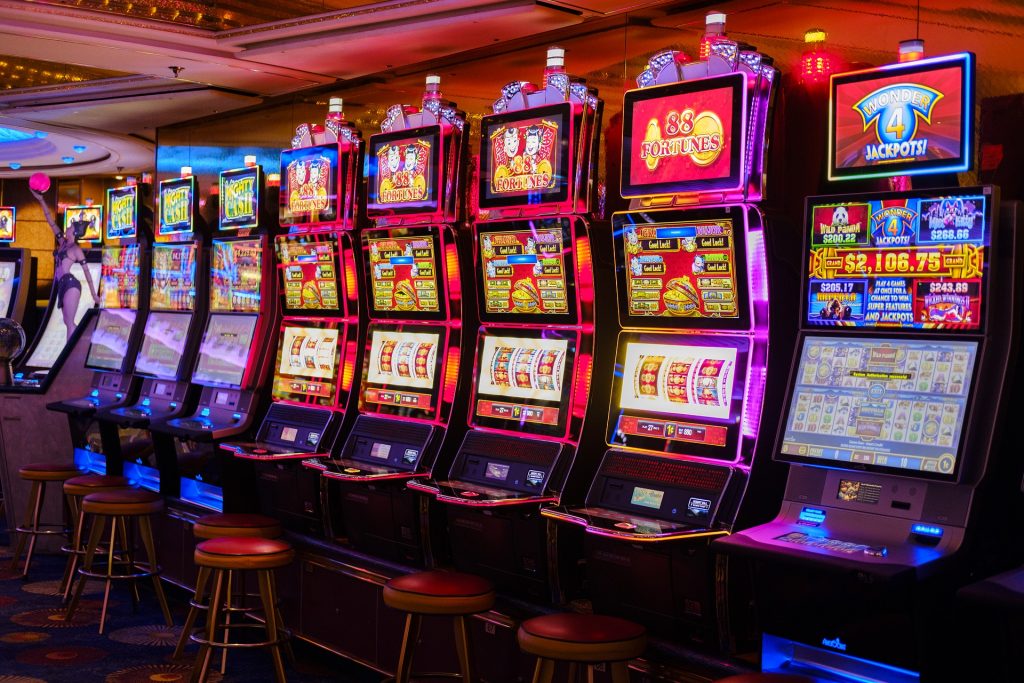They can cause huge harm to those individuals (and their families) caught in the addiction grip of the flashing lights and hope of prizes. But unfortunately they’ve also become a staple revenue source for many community groups and sports clubs.
We’re talking pokies – or to give them their official description, class 4 (non-casino) electronic gaming machines.

As required by legislation, Council is reviewing its Gambling and Board venue policy. There’s information and an on-line survey available. The submissions deadline is 10 November.
In the 2015 review of class 4 gambling machines the Hutt City Council of the day put a cap on the then total number of pokies (545) and set a limit of nine machines in any new venue. Currently we have 425 pokies in 28 venues in Te Awakairangi/Lower Hutt but more than 90 of those gaming machines are in the poorest parts of Lower Hutt.
A report from the NZ Institute of Economic Research found that even with this reduced number, Lower Hutt has 4 electronic gambling machines per 1000 people; the national average is 2.9.
Gambling machine profits (GMP – or total money fed in, minus prize payouts) was $25.6m million in 2020 in the city. That’s $69,500 per day, the fourth highest level of GMP of any region in New Zealand.
The NZ Health and Lifestyles Survey 2016 found about 10 per cent of Kiwis report they participate in class 4 gambling (55% bought Lotto tickets; 11% bet on horses, greyhounds or other sports events). If that’s true for the Hutt, the average per person for feeding money into pokie machines here is around $1600 a year. But given a higher proportion of pokie machines in Te Awakairangi are in high deprivation suburbs, and using that same 10% participation figure, the average spend for households in those parts of the city could be as high as $173 a week.
There are three options going forward:
- The status quo
- A ‘sinking lid’ (no new gaming machine licences granted, no transfer of licences, no merger of venues, support from council to problem gaming service providers), or
- A per capita approach, lowering the cap on machines to 325 and 25 venues, bringing us into line with the national average.
Some of the numbers above are truly horrifying but, as with many issues, there are two sides to the story. The law requires pubs with pokies to return 40% of machine profits by way of community good grants (clubs such as the Petone [Working Men’s] Club can retain that money to fund community good purposes within their operation).
Many clubs and community organisations will tell you that grants from pokies trusts are pretty much the only revenue stream that keeps them solvent, or enables upgrades and equipment purchase. If pokies grant money declines over time, what will replace it?
And is there a risk that if access to pubs with pokie machines is made harder, more people will turn to on-line gambling – which pays no community dividend at all and has no supervision for gambling harm.
There are other issues that weigh in for Hutt City Council and the demand on ratepayers.
Council owns the building that is now home to the Naenae Bowling Club and the covered rinks that attract regional and national tournaments. Ratepayers stumped up millions to establish this excellent facility. The club derives $85,000-$105,000 revenue from its nine pokie machines. It could be argued it would by hypocritical of council to clamp down on pokies because of the harm they cause, but keep running nine of them in one of its own facilities. But if we insist the club ditches those nine machines, will rates money have to make up that $85k-$105k lost revenue?
It’s also proposed as one of the options that our team that looks after alcohol off and on-licences extend its duties to monitor premises with pokie machines to ensure that gambling harm reduction requirements are being carried out. That’s an added expense on council resources. It’s also suggested we may support providers offering gambling harm services – more expense for ratepayers in a field that some might argue is the responsibility of central government health authorities.
What do you think?
Fill in the on-line survey. I chair the Policy, Finance and Strategy Committee and we’ll be making recommendations to full council at our November 16 meeting. I’d appreciate hearing your views direct – simon.edwards@huttcity.govt.nz